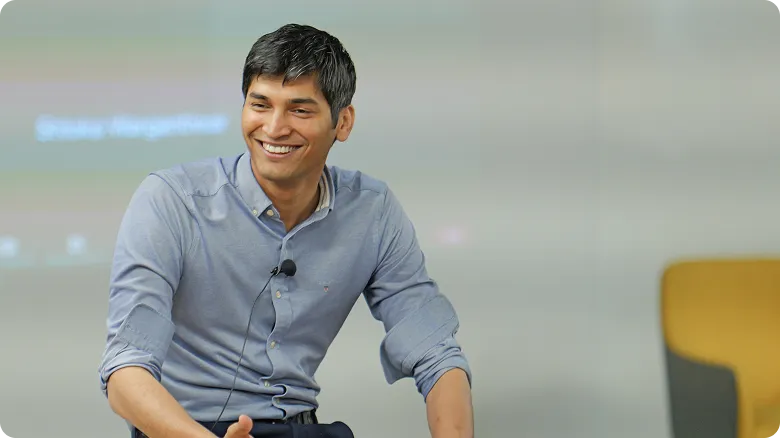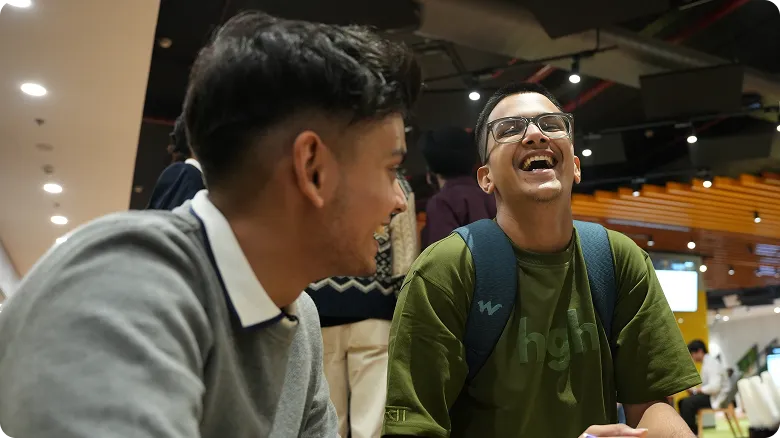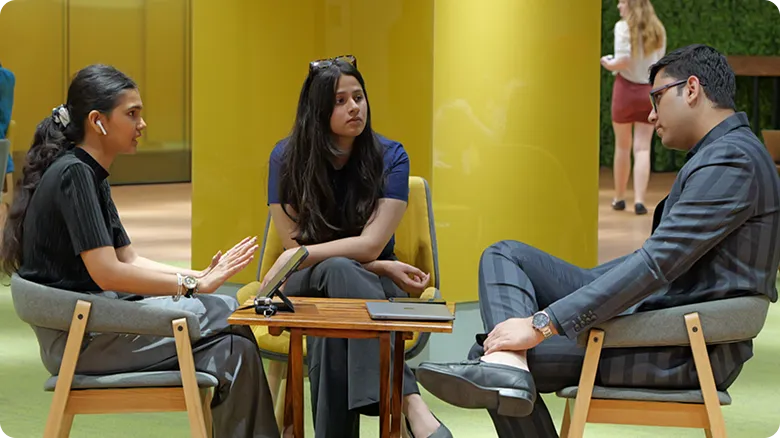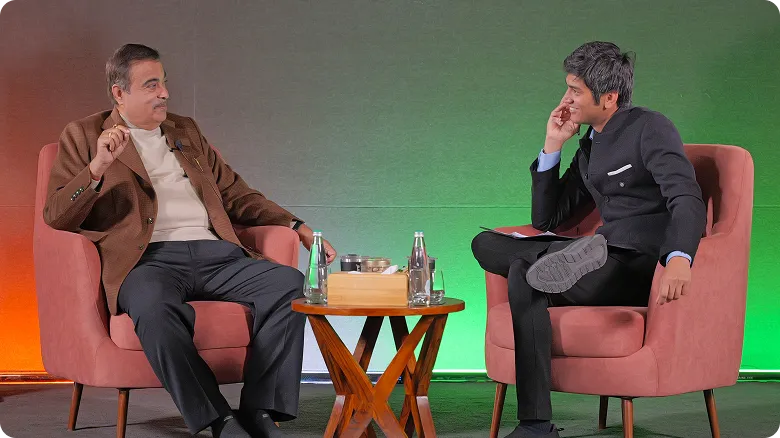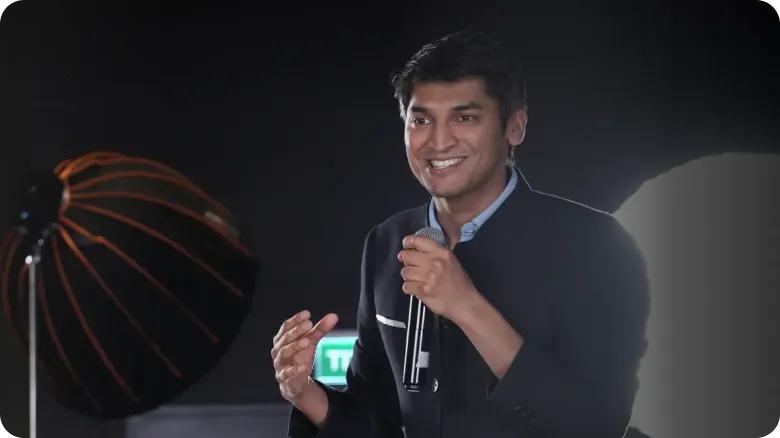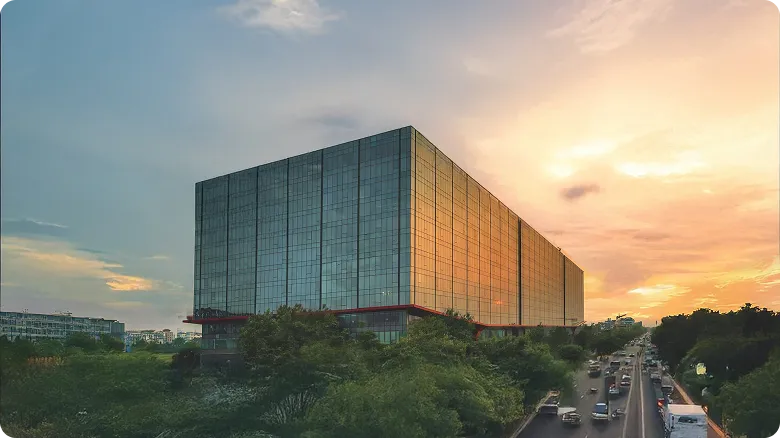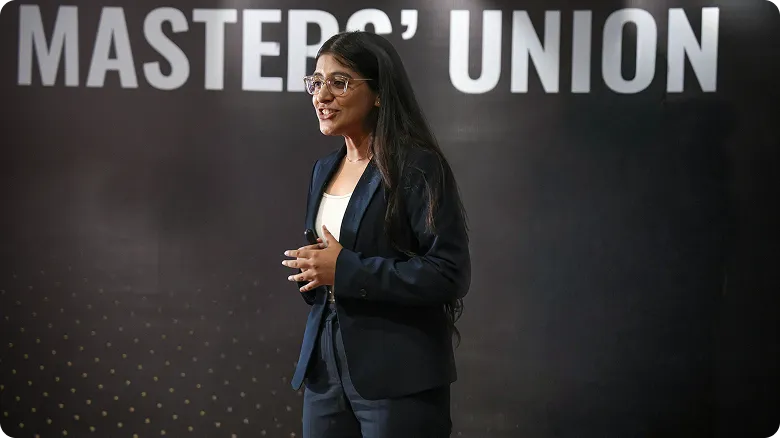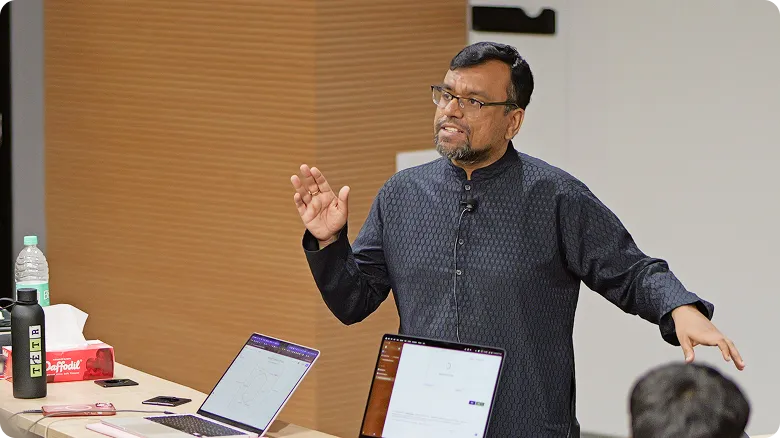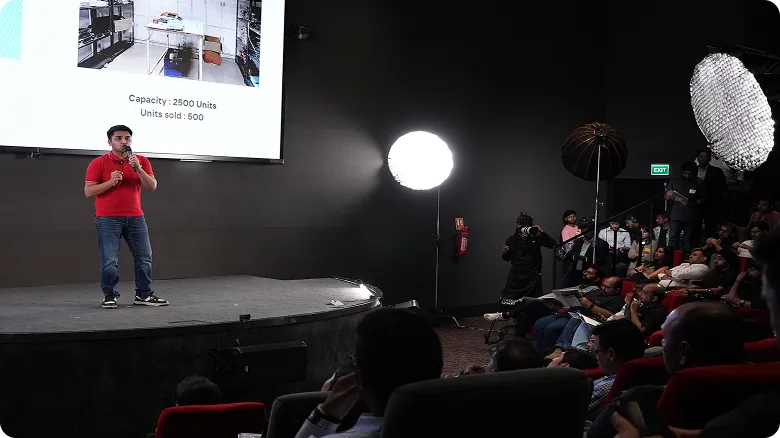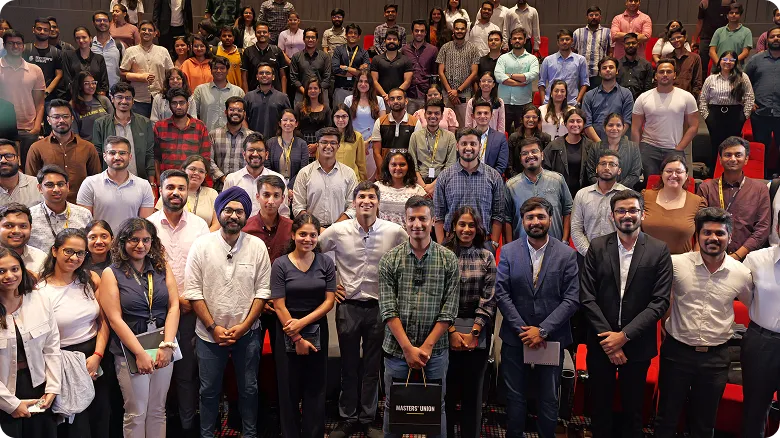Undergraduate
Undergraduate (Global)
Postgraduate
PGP in Technology and Business Management
PGP in Technology & Business Management
(Young Leaders Cohort)
PGP in Human Resources & Organisation Strategy
PGP in Sports Management & Gaming
PGP in Applied AI & Agentic Systems
PGP in UI/UX & Product Design
PGP in Sustainability & Business Management
PGP Bharat
Executive
Family Business
Careers
Innovations
Faculty
MU Ventures
Enterprise Education
Student Life
Jobs
Become a Master
events
For Companies
Blog
Business
UPES Vice Chancellor on Career Pivots, Private Universities, and Leadership Practices
July 29, 2025
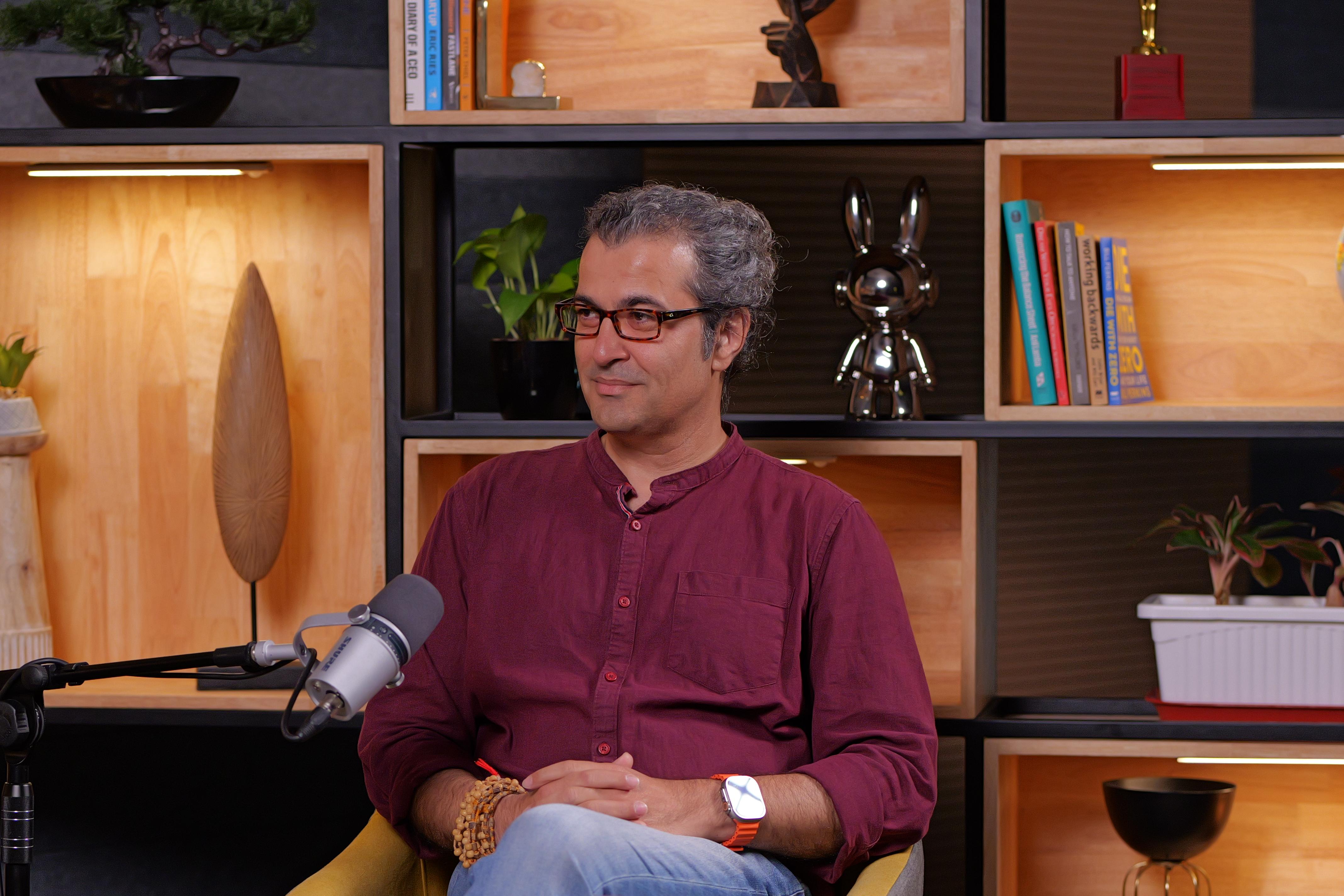
At the Intersect Podcast by Masters’ Union, hosted at the DLF Cyberpark campus, Prof. Ram Sharma, Vice Chancellor of the University of Petroleum and Energy Studies (UPES), joined Prof. Ankur Vohra, Head of Institutional Partnerships at Masters’ Union.
In this candid conversation, Prof. Sharma reflected on his academic journey, failures that redirected him, and the structures that help institutions and individuals thrive.
When Prof. Ankur Vohra asked about his academic start, Prof. Ram Sharma described a quiet pivot. After completing his PhD in Physics, he set his sights on the civil services - but turned toward academia instead.
“I didn’t get selected,” he said. “That’s when I turned to academia seriously.”
He didn’t linger on what didn’t happen. He leaned into what felt right.
Today, as Vice Chancellor of UPES, that choice feels less like a detour and more like a direction. For undergraduates in the room, it wasn’t just a career story—it was a mindset shift.
UPSC Journey to University Leadership: Prof. Ram Sharma’s Academic Transition
Prof. Ram Sharma didn’t wait for his UPSC (Union Public Service Commission) result to decide his future. After his PhD in Physics, he chose academia with full intent.
At MIT Manipal, he began his career not with titles, but with a question: “What more can I do?”
That question shaped his path.
At Shiv Nadar University, he built beyond the classroom—managing student affairs, designing IT systems, and shaping governance.
Today, as Vice Chancellor of UPES, he leads by serving the system so it better serves the student.
He doesn’t chase authority. He builds trust.
He doesn’t perform leadership. He practises it—quietly, consistently.
For students at Masters’ Union, his journey was a reminder: showing up with intent is leadership in action.
UPES VC on How Private Universities Are Structured
Prof. Ram Sharma broke down how India’s private universities are typically structured.
He shared four models:
-
Promoter-led institutions - Usually family-run or legacy-driven.
-
Single-donor philanthropic institutions - Funded by one key patron or founder.
-
Collective philanthropic models - Backed by multiple donors (e.g., Ashoka University).
-
Professionally managed universities - Operated by institutional stewards with no ownership (e.g., UPES).
Prof. Sharma has worked across all four. His take? The real difference lies not in ownership, but in how decisions are made.
“It’s not about who holds the power. It’s about how repeatable and transparent the process is,” he told our undergraduate students.
He noted that professionally managed institutions often create space for better governance, long-term thinking, and institutional integrity.
He added that the professionally managed model often fosters better governance, long-term thinking, and institutional accountability by design.
UPES VC Prof. Ram Sharma on Leadership and Community Building
Prof. Ram Sharma shared a grounded view of leadership with our students. He says that it is less about titles and more about showing up with awareness.
At UPES, he built a 650-member trekking community of students, staff, and faculty - not for thrill, but for stillness.
“We walk together. Sometimes in silence. That’s where leadership grows,” he told the Masters’ Union cohort.
Prof. Sharma also spoke about how Indian epics shaped his lens. Raised in Rajasthan’s deserts, he imagined the Himalayas. Today, he walks them - tracing the steps of the Ramayana and Mahabharata.
This wasn’t just philosophy. It was a powerful reminder: Leadership isn’t loud. It’s intentional.
Leadership notes from the UPES VC
1. Stillness is important to build clarity.
2. Community creates culture, and shared journeys matter.
3. Walk your values, don’t just quote them.
Book Recommendations by the UPES Vice Chancellor
When asked by Prof. Ankur Vohra which books had shaped his thinking, Prof. Ram Sharma didn’t list management bestsellers or modern productivity hacks. His answers were timeless:
-
Siddhartha by Hermann Hesse
-
The Bhagavad Gita
-
The Mahabharata - all 18 parvas
“These aren’t syllabus texts,” he said. “They’re survival kits.”
For Prof. Ram Sharma, growth isn’t driven by speed but by reflection. In a world dominated by scrolls, swipes, and quick takes, he encouraged students to seek stillness, the kind that builds real clarity over time.
His message to our students was clear: anchor yourself in ideas that last, and thoughtfulness is a competitive edge.
UPES Vice Chancellor’s Insights on Foreign Universities Entering India
India is opening its doors to foreign universities. Sharma called it “our 1991 moment,” a nod to economic liberalisation.
But he issued a warning at Masters’ Union: if international players are here only to extract, they’ll fail. The market rewards those who adapt to Indian realities, not override them.
He also pointed out the cultural gap between Indian parents’ ROI mindset and the open-ended promise of liberal education.
What Foreign Universities Must Understand:
-
India rewards adaptation, not extraction.
-
Cultural fit matters more than global rankings.
-
Liberal education needs a local context to land well.
Why Masters’ Union Brings Leaders Like Prof. Ram Sharma to the Classroom
At Masters’ Union, learning goes beyond theory. It’s about real people solving real problems in real time.
That’s why we host practitioners like Prof. Ram Sharma - not just for inspiration, but for instruction.
From his conversation with Prof. Ankur Vohra, students took home more than notes. They left with mental models.
Takeaways from the UPES Vice Chancellor
-
Stillness builds better leaders, and presence matters more than presence of mind.
-
Institutional culture shapes outcomes, not just curriculum or capital.
-
Leadership doesn’t need volume; it needs vision and consistency.
Final Thoughts
Prof. Ram Sharma didn’t follow a perfect plan. He followed the moment fully and with intent.
At his session with the Masters’ Union students, what resonated wasn’t a list of titles. It was how he made space for reflection, through missed exams, long walks, and slow, steady effort.
For students figuring out their next step, the takeaway was clear: You don’t need all the answers. You need better questions and the pause to hear them.




